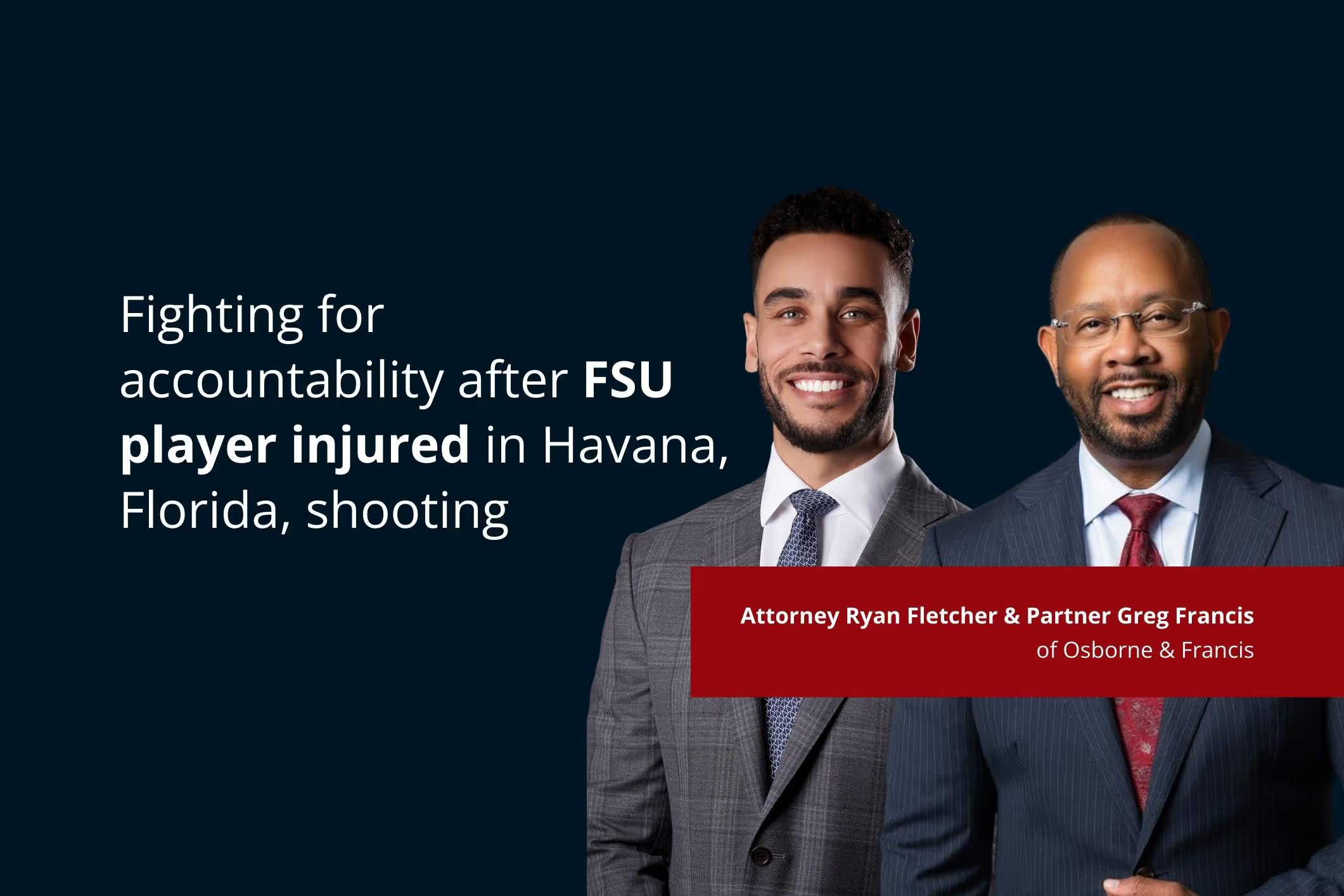Many farmers in the United States depend on loans to establish or expand their businesses. Unfortunately, the loan programs overseen by the U.S. Department of Agriculture have been biased against certain groups of people, particularly based on race, gender, and sexual orientation. There is a new opportunity under the Inflation Reduction Act for farmers who have experienced biased treatment from USDA loan officers.
Farmers who have been unfairly denied a loan or been subject to discriminatory loan practices may be entitled to recover compensation for their damages in an IRA discrimination claim. The civil rights attorneys of Osborne & Francis are prepared to use our extensive background in anti-discrimination law to help you secure a fair settlement. You can reach us at (561) 678-0156 or contact our offices in Boca Raton or Orlando to schedule a free case evaluation to learn more about what our team can do for you.
What is the Inflation Reduction Act (IRA)?
The Inflation Reduction Act (IRA) is a law passed to mitigate the strain of rising inflation by channeling money into deficit reduction, capping prescription drug prices, and supporting clean energy. After repeated delays in negotiations, Senate Majority Leader Chuck Schumer (D-NY) and Senator Joe Manchin (D-WV), the linchpin in the bill’s success, were able to reach a compromise.
The Inflation Reduction Act was signed into law in August of 2022 by President Biden after being sponsored by Rep. Yarmuth (D-KY). Among other things, the IRA reserved a portion of its budget to rectify the rampant discrimination of the USDA’s loan programs.
Under this act, farmers, forest owners, and ranchers will be able to make a claim for compensation for Discrimination Financial Assistance. Personal injury lawyers are stepping in to represent individual claims to ensure that plaintiffs are treated fairly.
Covered Forms of Discrimination Under the IRA Discrimination Claims
There are a number of ways in which USDA loan officers have been accused of treating minority farmers, ranchers, and landowners unfairly. Most commonly, loan applicants were illegitimately denied a loan, the USDA created circumstances where it would be impossible for them to take out the loan, or offered them a highly supervised loan.
Loan Denials Unfairly Impacted Minority Groups
There have been numerous reports over the years of the USDA’s loan officers rejecting the applications of farmers based on race, gender, and other characteristics. Loan officers may have provided excuses as to why they rejected the loan application in order to conceal their bias. There are also instances where minority applicants were denied a loan in favor of an applicant that the loan officer knew personally or simply preferred.
USDA Subjected Minority Farmers to Unfair Loan Terms
The USDA repeatedly offered unreasonable loan terms to applicants based on factors like race, nationality, sexuality, and disability status. For example, loan officers would set unrealistic timelines for repayment or change the terms of the loan without getting the borrower’s approval. If the loan officer’s actions compromise cash flow, this can create significant financial hardship for the farmer, rancher, or forest landowner.
Deferred Loans Can Compromise Loan Applicant’s Livelihoods
Discriminatory practices within the USDA have historically included deliberately delaying or deferring loan applicants so they never receive the benefits of the loan. For example, let’s say that a farmer requested a loan to replace an old piece of harvesting equipment. A prejudiced USDA loan officer decided that they would delay their loan application to the point that the farmer had no choice but to use the unreliable, older equipment to harvest their fields. As a result, the farmer’s harvest wasn’t as bountiful as anticipated, costing them significant profit.
Excessive Collateral Practice Targeted Minority Farmers
In some cases, the USDA required unreasonable collateral in order to dispense a loan. It’s common practice for a lending institution to ask for an asset to serve as collateral in case the borrower defaults on the loan. As it turns out, the USDA was asking for excessive collateral from certain groups in order to agree to a loan. Minority farmers and ranchers were faced to decide between agreeing to an unwise level of collateral or forgoing a USDA loan.
Extra Involvement by USDA May Violate Borrower’s Rights
The USDA has also been accused of providing unreasonable supervision or terms to borrowers as a form of discrimination. Reportedly, USDA loan officers have micromanaged certain farmers and ranchers to the point that it has violated their rights. In addition to the issues outlined above, other types of discrimination may occur, such as a loan officer failing to explain the options available to a borrower.
Who is Eligible for Discrimination Financial Assistance from the IRA?
In order for your IRA discrimination claim to be considered, the discrimination must have taken place prior to January 1st, 2021. The USDA has a broad anti-discrimination policy that prohibits unfair treatment on the basis of:
- Race
- Color
- National origin
- Religion
- Sex
- Gender identity and gender expression
- Sexual orientation
- Disability
- Age
- Marital status
- Family/parental status
- Income derived from a public assistance program
- Political beliefs
- As reprisal or retaliation for prior civil rights activity
The Inflation Reduction Act Doesn’t Specify Which Minority Groups are Covered
It is expected that farmers, ranchers, or landowners who have faced discriminatory loan policies based on one or more of these characteristics will be eligible to file an IRA discrimination claim. The USDA has yet to formally confirm which factors will be considered eligible, and more factors may be added. As of right now, non-farm loans are not included in the eligible category.
How Much Assistance Can You Receive?
Farmers and ranchers rely on loans from the USDA to purchase equipment, seeds, and animals. It can also assist with living expenses to compensate for the uneven profit cycle that farm life entails. Since then, the Biden administration has acknowledged that the USDA’s loan program has repeatedly harmed minority groups through unfair and discriminatory lending decisions. To provide relief for these farmers, ranchers, and forest landowners, Congress has appropriated $2.2 billion dollars for this set of claims. Individual claims can receive up to $500k.
How Can Osborne & Francis Help You?
At Osborne & Francis, our personal injury lawyers have relevant experience that makes us uniquely qualified to handle IRA discrimination claims for affected farmers, ranchers, and land owners. Attorney Greg Francis is an accomplished negotiator in civil rights claims, securing 1.25 billion dollars for black farmers who had been repeatedly discriminated against by the USDA.
His ability to maximize compensation is consistent with our firm’s glowing track record. By choosing Osborne & Francis to represent you, you are setting yourself up for success. Our team will immediately begin the work of building a strong claim for damages by compiling evidence, calculating your damages, establishing liability, and negotiating for maximum compensation.
The civil rights attorneys of Osborne & Francis have the expertise and the fortitude to negotiate for the compensation you need from the IRA. Contact us at (561) 678-0156 or reach out to our offices in Boca Raton or Orlando to schedule a free case evaluation where our team will help you determine if you meet the requirements for filing an IRA discrimination claim and assess what your claim may be worth.
.avif)













.avif)


.svg)




